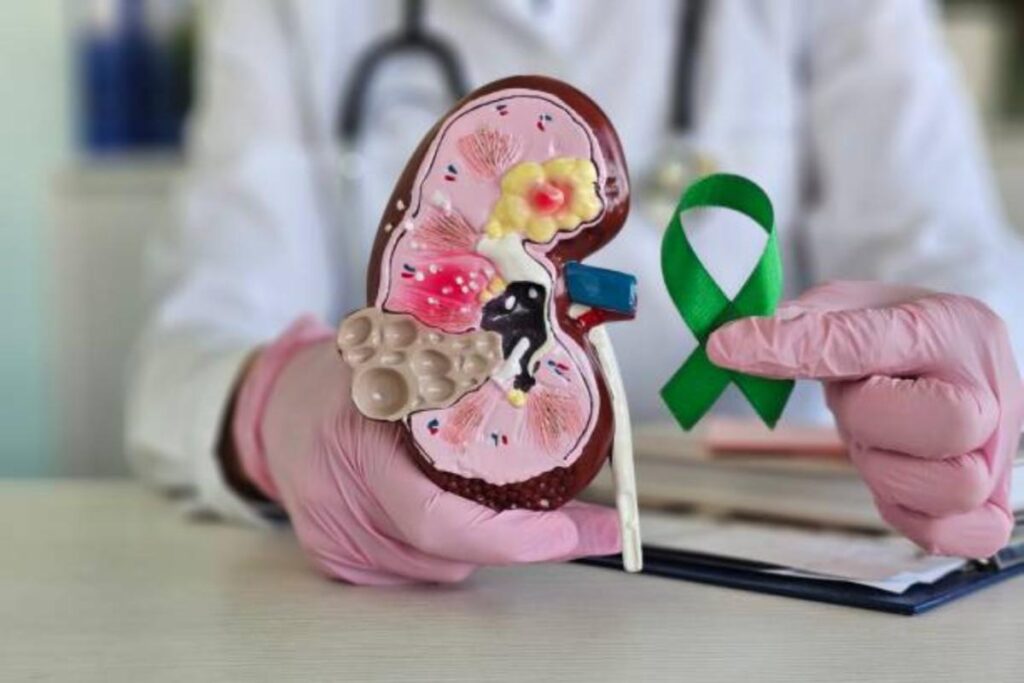Extra medications and fluid infusions may help protect your kidneys from damage during chemotherapy.
In the United States, 100 people undergo chemotherapy or radiation therapy for cancer each year. However, many people’s kidneys are unable to remove these chemotherapy drugs from the body, leading to kidney damage.
Your doctor will monitor your kidney health to protect your kidneys during chemotherapy.
You may be given protective drugs or offered more intravenous fluids to help remove chemotherapy waste products from your body.
Sometimes, chemotherapy adjustments or temporary interruptions may be needed to recover sustenance purpose.
How do you keep your kidneys healthy during cancer action?
Before preliminary chemotherapy, doctors may do several tests to determine your kidneys’ health.
During chemotherapy, doctors may take some measures to protect your kidneys.
- checking fluid and electrolyte heights to see how well the kidneys are employed
- , infusing the body with extra liquids to help flush chemotherapy drug left-over out of the body
- , prescribing drugs like amifostine to help defend the kidneys
- , treating any other health issues
- , lowering chemotherapy levels or indorsing dialysis if the kidneys are failing
Can chemo cause kidney failure?
Nephrotoxicity is a scientific term for the deterioration of kidney function associated with exposure to toxic chemicals and drugs. Nephrotoxins are substances that can cause nephrotoxicity.
Some of the more common nephrotoxins in chemotherapy include:
- methotrexate
- semustine
- streptozocin
- mithramycin
- cisplatin
Nephrotoxins present in chemotherapy drugs can cause cysts, inflammation, and damage to kidney structures. This can lead to impaired kidney function, chronic kidney disease, and even kidney failure.
Can kidneys recover from chemo damage?
In many cases, the kidneys can recover from the damage caused by chemotherapy. Once chemotherapy ends and the kidneys no longer filter toxic chemicals, they can recover.
Some factors that affect the kidneys’ ability to recover from damage caused by chemotherapy include:
- whether or not kidney glitches were present before chemotherapy
- the extent/length of the chemotherapy actions
- the specific remedies used in the chemotherapy treatments
- if other actions like radiation are also performed
Monitoring your kidney health Trusted Source can help determine when to lower your chemotherapy dose or temporarily stop treatment to prevent long-term offal injury.
Is kidney failure common in cancer affected by the role of chemo?
A 2019 study by Trusted Source of 163,071 people receiving chemotherapy or beleaguered drug treatments found acute kidney injury (AKI) in 9.3% of them.
The study found that kidney damage remained twice as likely to occur inside the first 90 days of cancer treatment. The most common cancers were myeloma, bladder cancer, and leukemia.
Advanced cancer, existing kidney disease, and diabetes were among the factors related to higher rates of kidney damage.
Another study looked at kidney problems in children with cancer and found that 56% of children developed kidney and urinary tract problems during and shortly after treatment.
Severe kidney disease was rare among long-lived patients but was significantly more common than among their siblings.
What is the treatment for kidney disease?
If chemotherapy damages your kidneys, your doctor may endorse lifestyle changes, medications, reducing the amount of chemotherapy, or even kidney dialysis.
Lifestyle strategies such as not drinking alcohol and not smoking can help promote kidney health. In adding, a diet low in sodium, potassium, and phosphorus can help keep your kidneys as healthy as possible. You can read more about this here.
Your doctor may also encourage regular physical activity and weight loss if you are overweight before obese.
No specific medication can cure kidney disease. However, drugs such as diuretics can help remove excess fluid and waste from the body.
In some cases, doctors may recommend reducing the chemotherapy you receive.
If the kidneys cannot properly filter and remove waste from the body, dialysis may be needed.
Takeaway
Your kidneys may be damaged as they break down and eliminate chemotherapy drugs from your body.
To prevent severe kidney damage, doctors may give you extra fluids during chemotherapy and prescribe protective medications.
Before you start chemotherapy, they will do tests to determine how healthy your kidneys are, and they will continue to monitor your kidneys throughout the chemotherapy process.
If your kidneys can no longer sufficiently filter waste from your body, you may need to change your chemotherapy regimen or undergo dialysis.

